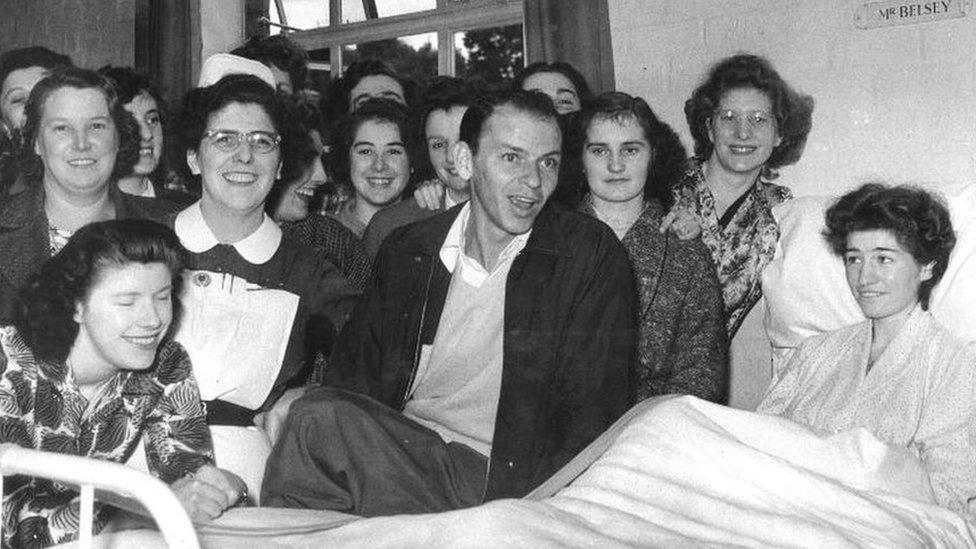How Bristol's major trauma centre works
- Published
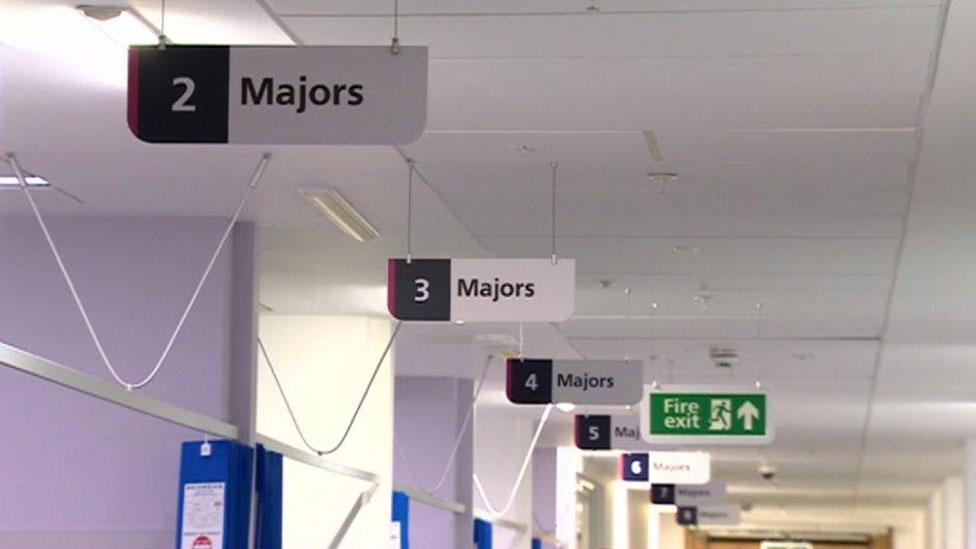
Southmead has a major trauma team available around the clock for the region
Wales is to get its first major trauma centre, which will have a specialist medical team on call 24 hours a day for the most serious emergencies.
Across the Severn Bridge, Bristol has operated one of two major trauma centres (MTC) for the south west of England since 2012 - along with Derriford in Plymouth.
It is estimated survival rates have improved by 30%.
It started at the old Frenchay hospital before moving to the new £430m Southmead super-hospital four miles away in 2014.
A cluster of six other hospitals - including Bristol Royal Infirmary - operate as major trauma units in a network around it.
But Southmead, one of 27 MTCs across England, is in line to take the most critical cases first - involving up to 1,500 patients a year.
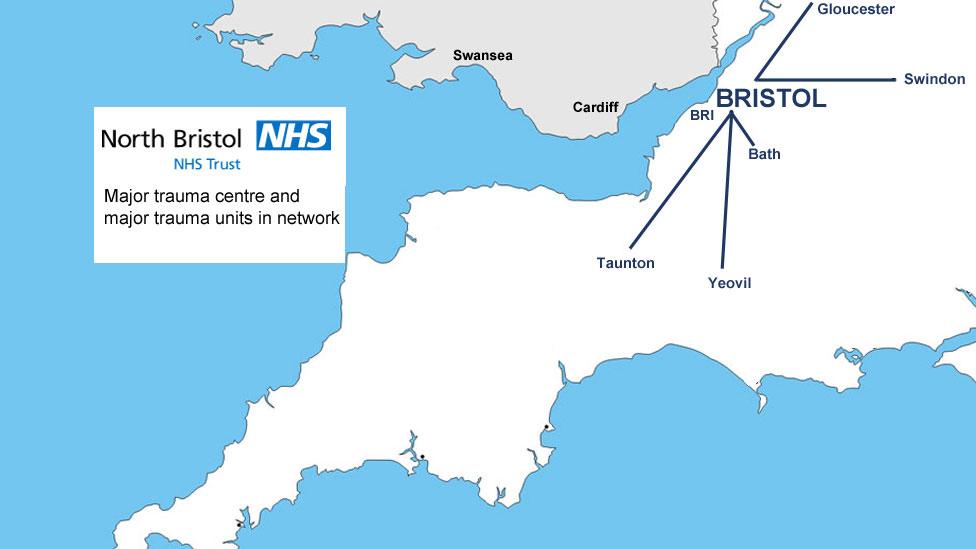
Southmead in Bristol is the regional centre of a hub with six other trauma units
Dr Ben Walton, consultant in intensive care medicine, said it offered a consistency of service which was not possible before.
"The feeling when these centres were first set up in London it would take five years to see improvements - we've seen it in 18 months," he said.
"In the past, if a patient was seriously injured in a road traffic collision or fell at home, they'd be taken to the nearest hospital with an emergency unit.
"Now, if they fulfil certain criteria and the assessment of the ambulance or pre-hospital doctor crew is that they're likely to have a serious injury, they will by-pass their nearest emergency department and be transferred directly to the major trauma centre."
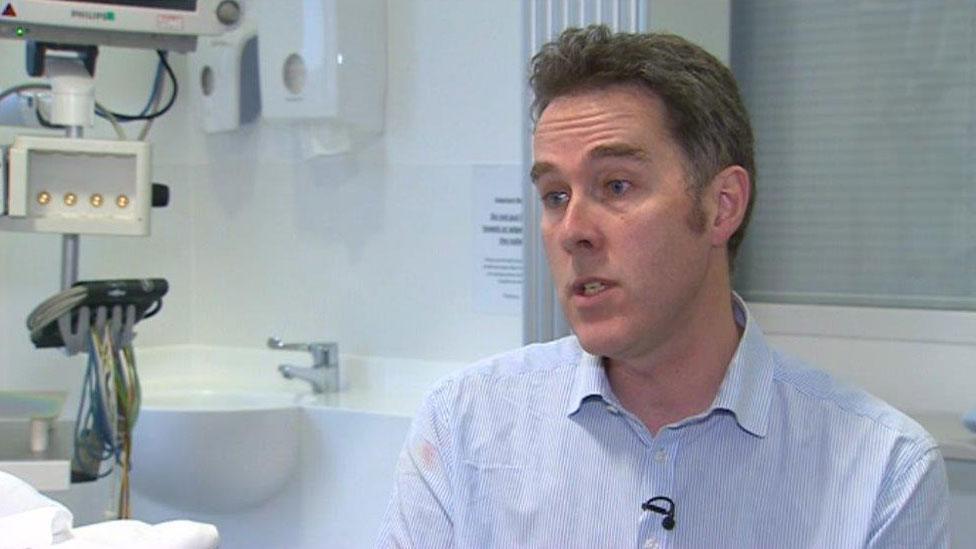
Dr Ben Walton said it was about delivering the best care, consistently
Dr Walton said the major trauma centre could gather together multiple specialists around the clock and deal with injuries which are often complex.
"Patients are met by a trauma team which is 24/7, 365 days of the year and there will always be a senior clinician - a consultant - leading that team.
"That's of benefit to patients and can't be provided at every hospital, it's impossible."
Lead nurse Juliette Hughes explains how Southmead is always prepared for the worst but is set up to achieve the best results.
There is a flow of patients between the other trauma units and the MTC, depending on the seriousness of their condition and stage of their care.
But Dr Walton said: "I think there's no doubt the rehabilitation of patients in our network is patchy. There's not a joined up, consistent service."
Major trauma also went beyond road crashes "people falling or being shot or stabbed".
He added: "A significant proportion are elderly patients with complex, pre-existing medical needs who have had what you might see as an innocuous fall or injury."
- Published30 March 2017
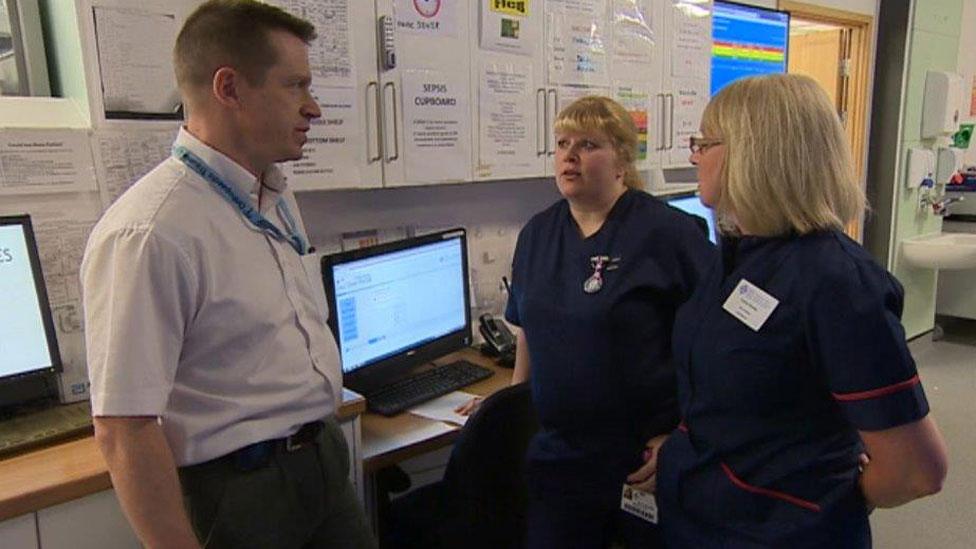
- Published30 March 2017
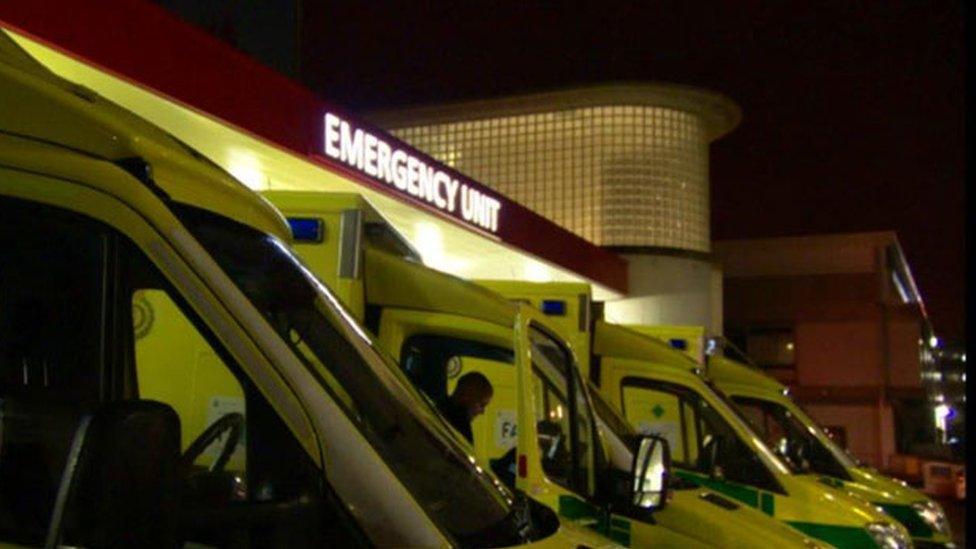
- Published30 March 2017
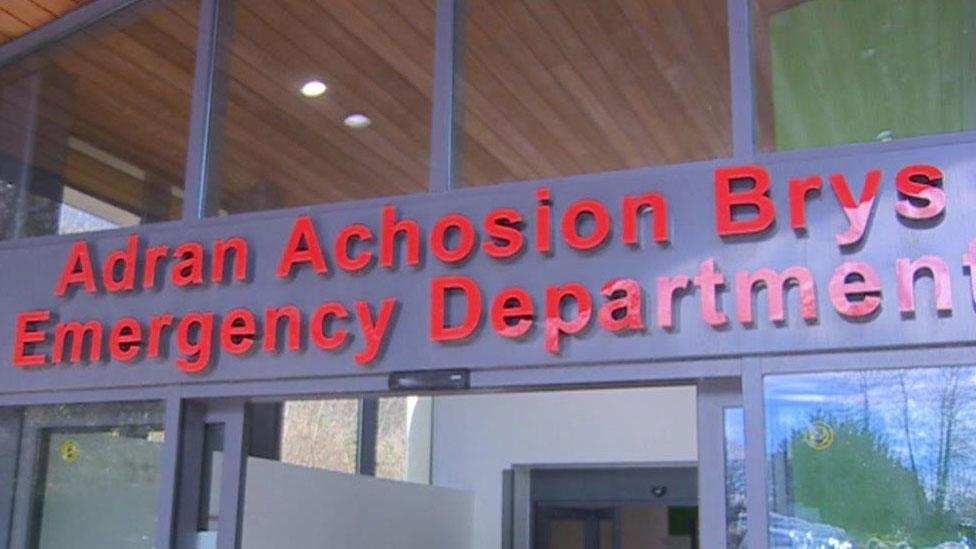
- Published19 May 2014
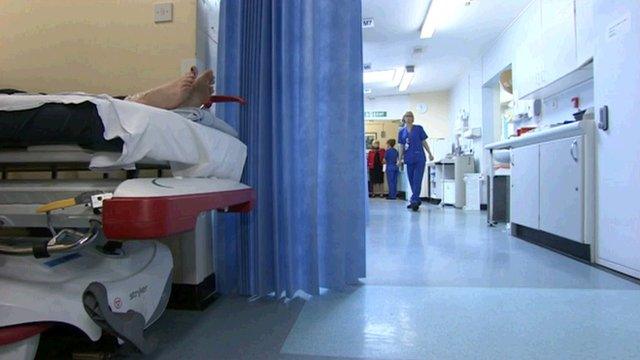
- Published6 April 2016
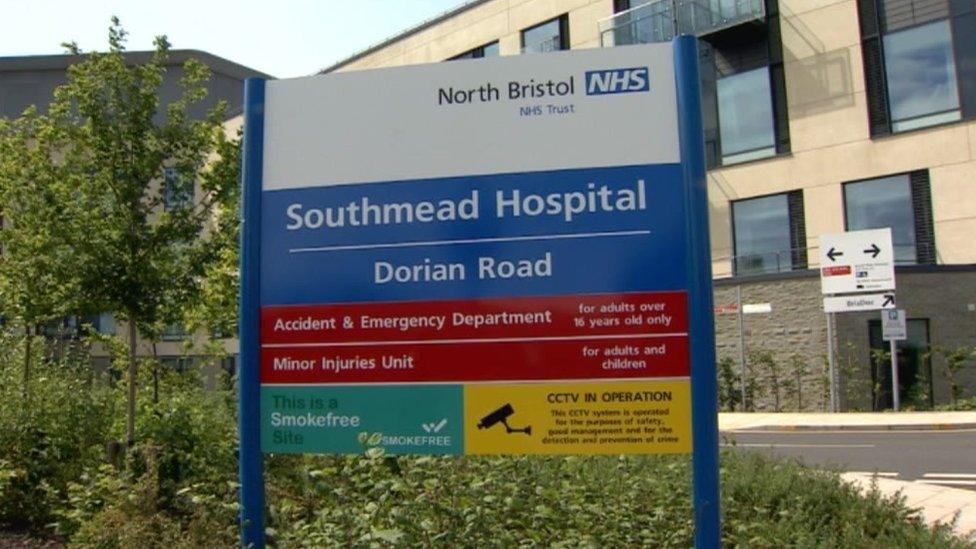
- Published27 November 2015
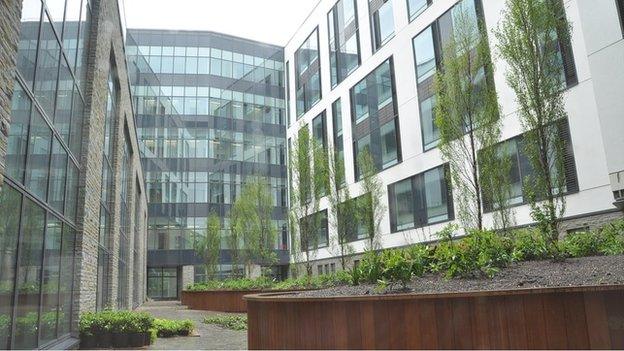
- Published22 May 2014
